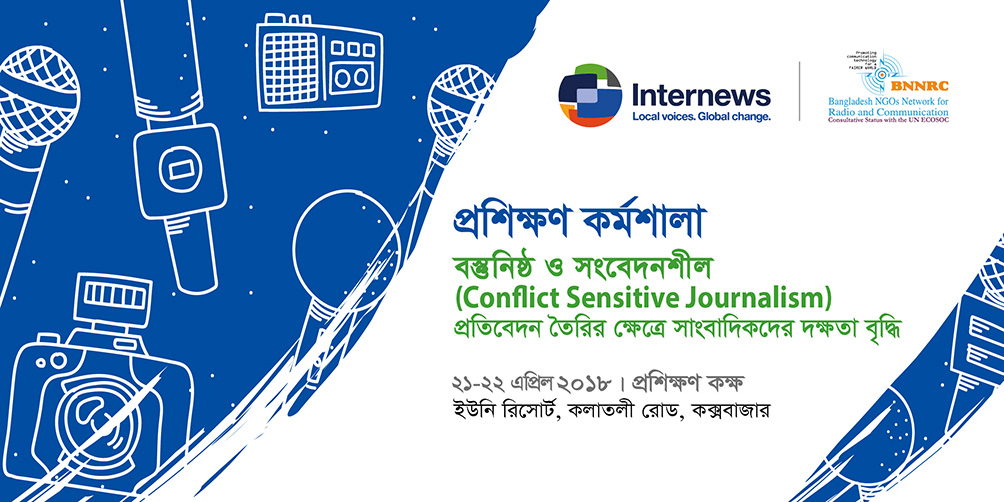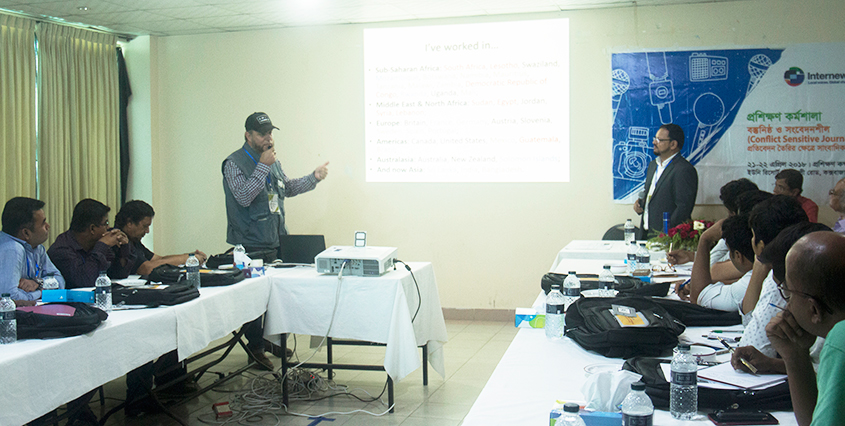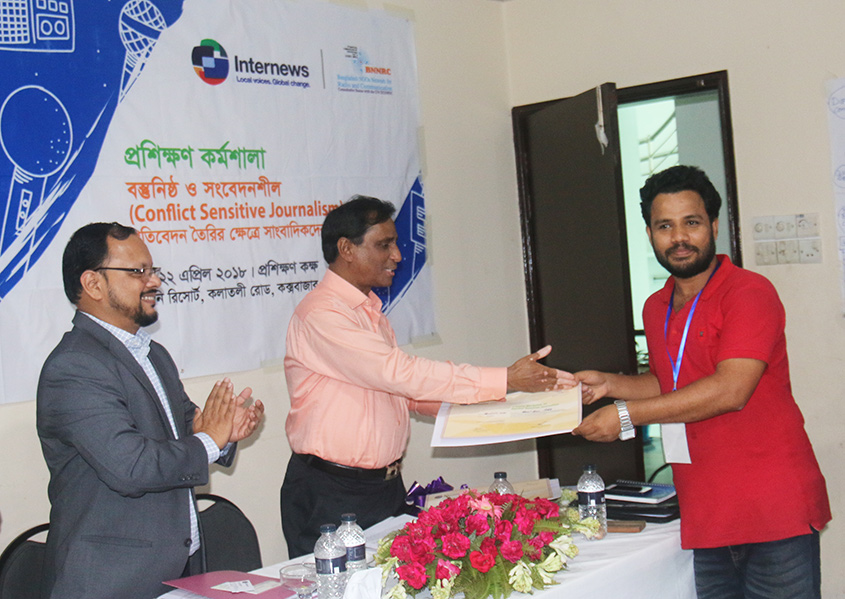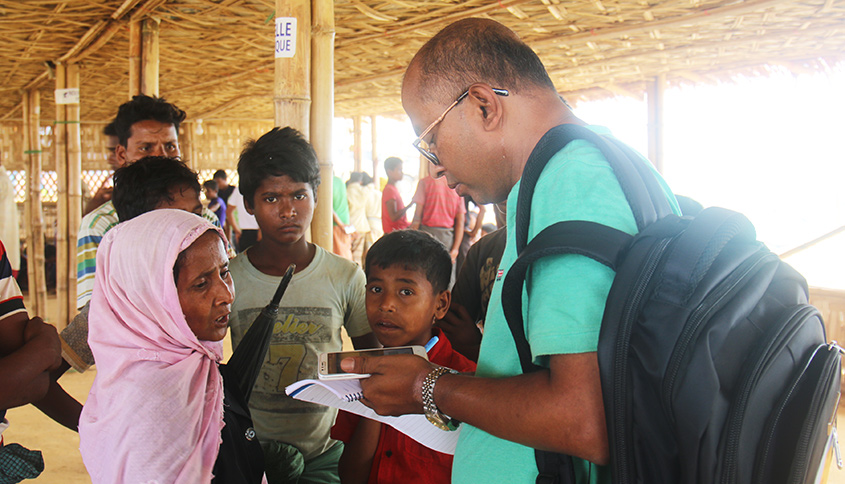21-22 April 2018, Cox’s Bazar, Bangladesh
Vanue: Uni-Resort, Beach Road, Cox’s Bazar
Facilitator: Michael Schmidt, Freelance Investigative Journalist, South Africa
List of Workshop Participant
Program Schedule
| DAY ONE | 21 April 2018 |
|---|---|
| 9.00am-9.45 | Registration |
| 9.45am-10.00am | Welcome and Introductions
Experiences of Reporting Conflict |
| 10.00am-10.10.30am | Introductory Speech
Additional Secretary, Ministry of Information |
| 10.30am-11.00am | Introduction to Conflict-Sensitive Journalism
Theories of Journalism & their Influence on Conflict Exercise 1: Six Duties Regarding Conflict |
| 11.00am-11.15am | TEA: 15 minutes |
| 11.15am-12.15pm | Motivations & Geometry of Conflict
Policies & Positions v Interests & Needs Exercise 2: Roleplaying Peace Talks Exercise 3: Types of Conflict |
| 12:15pm-12.45pm | Covering Crime & Civil Conflict
Human Trafficking, Gender Violence & Elections Exercise 4: Ten Tips for Election Reporting |
| 12.45pm-1.30pm | LUNCH: 45 minutes |
| 1.30pm-2.30pm | Conflict & Post-Conflict Scenarios
The Rohingya Experience in Bangladesh Exercise 5: A Comparison Film Clip: Rohingya Interviews (Al Jazeera 2017) |
| 2.30pm-2.45pm | TEA: 15 minutes |
| 2.45pm-3.45pm | Refugees, Migrants, Integration & Relocation
Camps, Livelihoods, Normalization & Return Assignment 1: Difference Matrix Film Clip: Sri Lankan Civil War (Arnestad 2006) |
| 3.45pm-4.45pm | Victims & Perpetrators
Black Hats v White Hats, Children & Trauma Victims Assignment 2: Handling Sensitive Interviews |
| 4.45pm-5.00pm | Reflection on the Basics of Conflict-Sensitive Journalism
Assignment 3 (Overnight) : Violent Actors & Victims Participants should read Assignment 3 (using Case Study 1: Who Speaks? as their example if necessary) and ready themselves to discuss the ethical and technical challenges of interviewing victims and perpetrators. DUE at 2.00pm on Day 2. |
| DAY TWO | 22 April 2018 |
|---|---|
| 9:00am-10:30am | FIELD TRIP:
Assessment of Assignment 3 (going in) Outcome: Understanding how best to interview a trauma victim |
| 10.30am-12.30pm | FIELD TRIP: Rohingya Refugee Camp
Interview one Refugee & one Aid Worker |
| 12.30pm-2.00pm | FIELD TRIP:
Writing intros for Interviews Conducted (returning) Packed LUNCH on the bus |
| 2.00pm-3.00pm | Reflections on Sensitive Interviewing
Assessment of Assignment 3 Discussion of Interviews Conducted |
| 3.00am-3.15am | TEA: 15 minutes |
| 3:00pm-3.15pm | Covering Floods & Humanitarian Disasters
Constraints in the Absence of Infrastructure Case Study 2: A Humanitarian Perspective |
| 3.45pm-4.30pm | Preparing to Work in the Field
Local Contacts, Fixers, Equipment & Exit Strategies Exercise 6: Working in the Field |
| 4.30pm-5:00pm | Reflection on the Lessons Learned
Conflict Sensitive Resources Workshop Evaluation |
Picture of Workshop:
Trainer Michael Schmidt seen taking a lesson on safety and security of journalists while delivering their professional duties.
District Commissioner of Cox’s Bazar Mr. Mohammad Abul Kalam, Additional Secretar, Ministry of Disaster Management & Reliefy and Commissioner for Relief & Repatriation, is handing over certificate to one of the participants.
As part of their assignment in the workshop one participants is seen taking an interview of a Rohingya refugee inside Kutupalong refugee camp.




